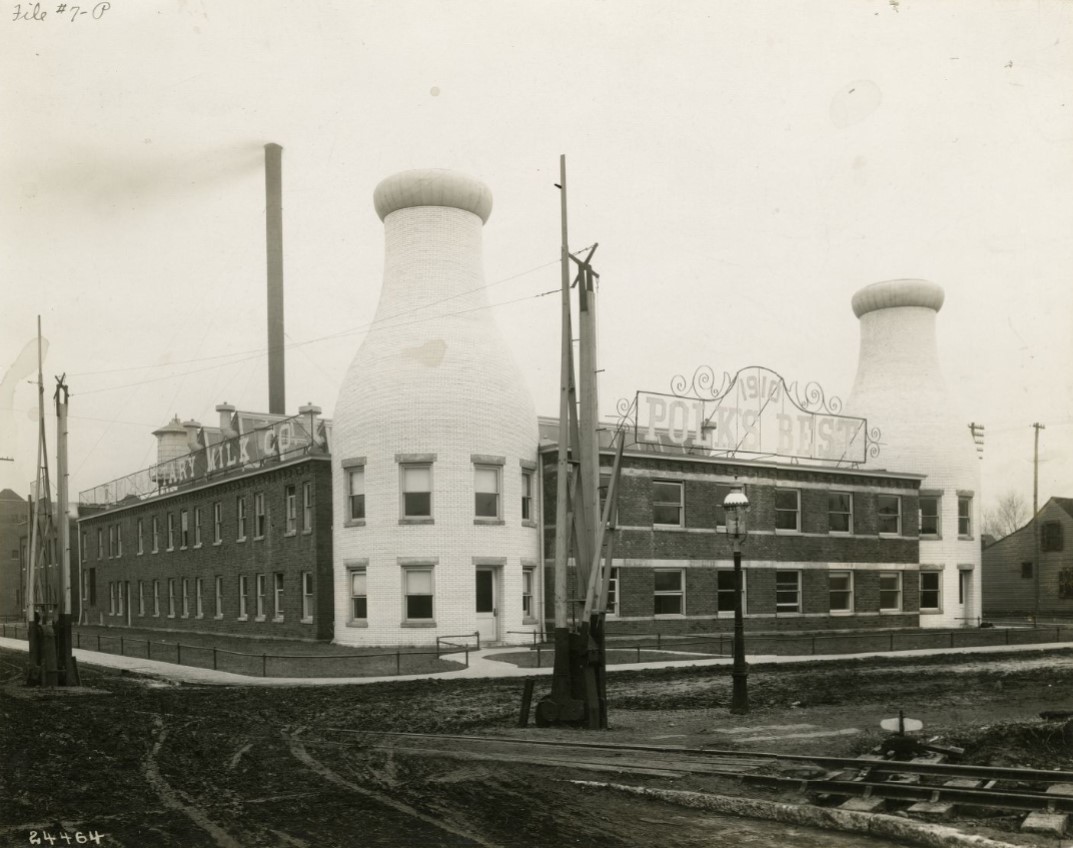James T. Polk, a prominent businessperson from , Indiana founded Polk Sanitary Milk Company on July 1, 1893. Polk’s milk business was born out of his vegetable canning business, which he began in the early 1870s after returning from serving in the . While profitable, his canning business created a problem—excess food waste. The solution came in the form of cattle. Polk acquired a herd of cattle to consume the food waste and to serve as another revenue source. His first attempt with beef cattle proved useful for his food waste problem but was unprofitable. He moved to Jersey cattle next and made a profit selling the milk.

By happenstance, Polk went from selling the milk from his herd to running a full milk distribution company. When Polk tried to collect a bill from Tanglewood Dairy, it offered to hand over its distribution rights as payment to Polk, thus beginning Polk Sanitary Milk Company. Polk’s started with a bottling plant in Greenwood and a small one-story distribution station at 325 East 7th Street (later renamed 15th Street) in Indianapolis. Polk’s son-in-law Samuel O. Dungan drove the company’s sole wagon to sell milk and cream only. Former president was Polk’s first customer.
According to its ads, Polk’s was the first milk distributor in Indiana to sell pasteurized milk in 1898 (well before the 1916 legal requirement that all milk sold in Indianapolis be pasteurized). This same year, Polk’s moved to a larger building at 613 East 16th Street in Indianapolis. The company was incorporated in 1904.
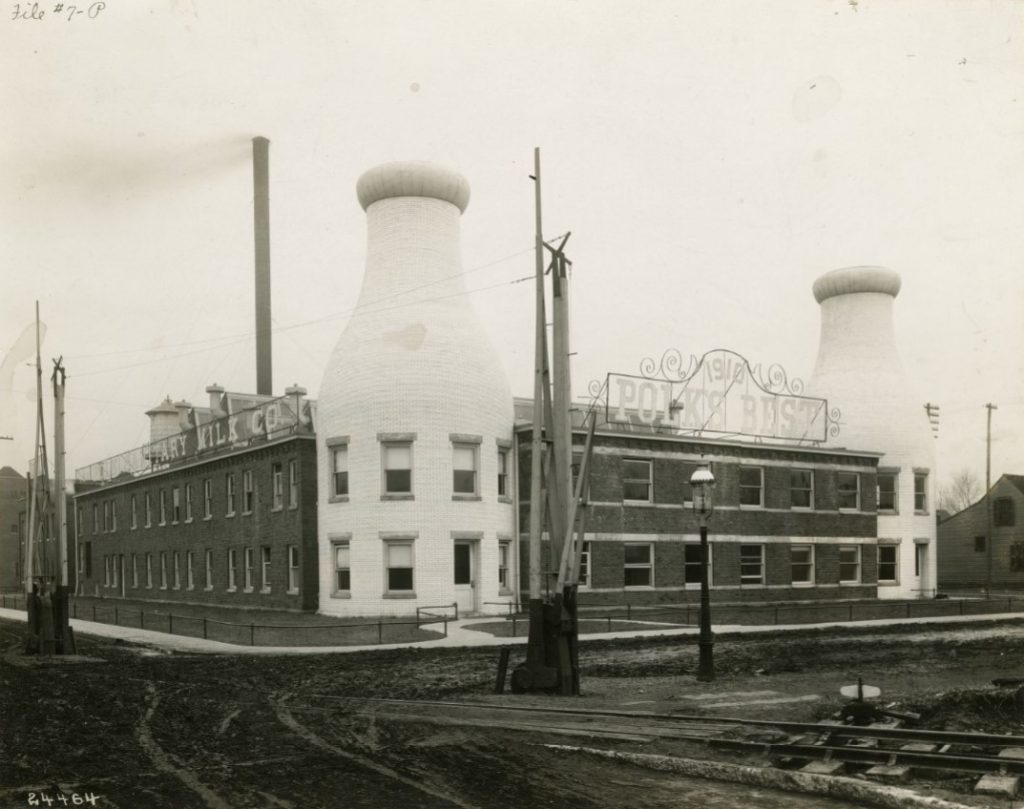
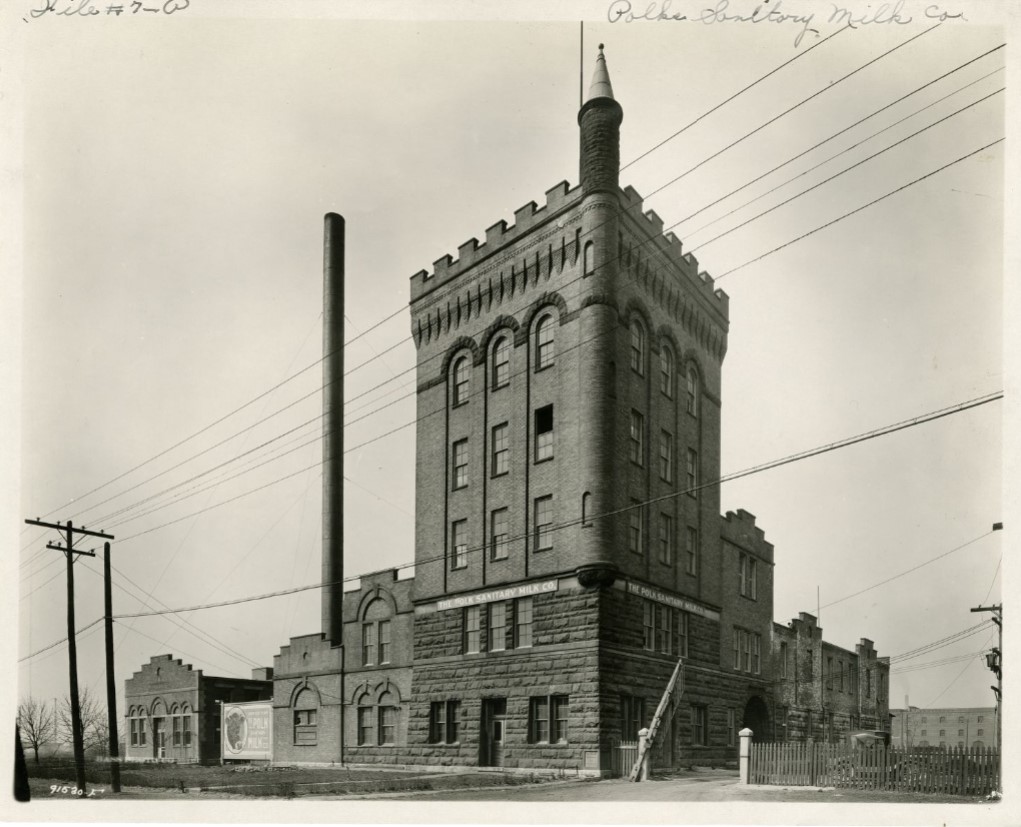
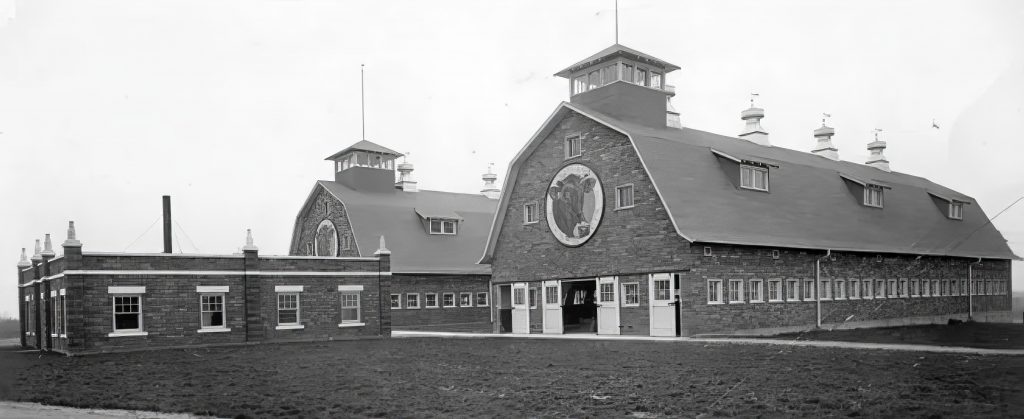
By the 1910s, Polk’s had become Indianapolis’s largest milk distributor. Polk’s bought milk from 175 milk producers and had 65 delivery wagons serving homes across the city. To accommodate its growth, the company moved to a compound of buildings at 1100 East 15th Street in 1910. The compound included a manufacturing plant, garage, storage, and offices. Two giant milk bottle structures incorporated into the main building’s design made for a unique exterior; however, its interior would prove noteworthy. With a rotary bottle filler, capper mechanism, and other machinery, Polk’s bottling method served as a model for several plants nationwide.
James Polk’s death in 1919 precipitated a change in leadership. Keeping the business in the family, Samuel Dungan took over as president. By the 1930s, the company grew to include 7 truck lines and several products: milk, buttermilk, guernsey milk, butter, coffee cream, cheese, sour cream, nursery milk, chocolate milk, whipping cream, and even orangeade. More options were added to the company’s offerings in the 1940s, including eggs, chocolate, and ice cream (1946). During this time, the company adopted the slogan “Polk’s Milk – Always Ahead.”
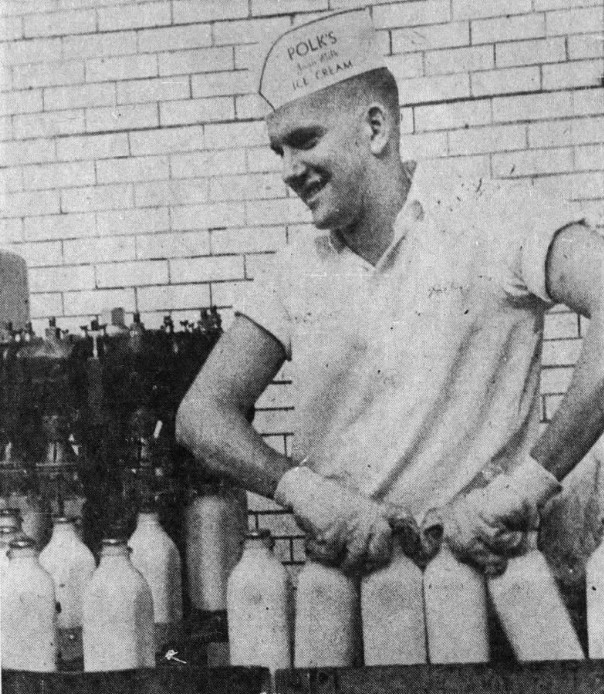
After Samuel Dungan died in 1946, J. Duane Dungan took over the business. He expanded Polk’s beyond by purchasing Quality Ice Cream Company of Bloomington, Indiana in 1953. Three years later, Polk’s expanded again by acquiring the Fertig Dairy Company of Franklin, Indiana to serve as a distribution point for southern Indiana.
Despite its growth throughout the first half of the 20th century, Polk’s did not last much longer. Samuel Dungan II took over the company in 1959, but his leadership would only last a few years. Polk’s went into receivership in September 1962 after a financial dispute between the Independent Milk Producer’s Association and the Central Indiana Dairymen’s Association. William Atcheson, president of Maplehurst Jersey Farms, and William Van Dyke, an investor in Maplehurst purchased Polk’s in 1963.
In 2019, the Polk Group purchased the sole-standing Polk building in Indianapolis, located at 16th Street and the . The group turned it into Polk Stables, a co-working space for entrepreneurs and artists.
FURTHER READING
- Hostetler, Joan. “Indianapolis Then and Now: Polk Sanitary Milk Company, 1100 E. 15th Street.” Historic Indianapolis, November 7, 2013. https://historicindianapolis.com/indianapolis-then-and-now-polk-sanitary-milk-company-1100-e-15th-street/.
CITE THIS ENTRY
APA:
Fischer, J. (2024). Polk Sanitary Milk Company. Encyclopedia of Indianapolis. Retrieved Feb 21, 2026, from https://indyencyclopedia.org/polk-sanitary-milk-company/.
MLA:
Fischer, Jessica Erin. “Polk Sanitary Milk Company.” Encyclopedia of Indianapolis,” 2024, https://indyencyclopedia.org/polk-sanitary-milk-company/. Accessed 21 Feb 2026.
Chicago:
Fischer, Jessica Erin. “Polk Sanitary Milk Company.” Encyclopedia of Indianapolis, 2024. Accessed Feb 21, 2026. https://indyencyclopedia.org/polk-sanitary-milk-company/.

Help improve this entry
Contribute information, offer corrections, suggest images.
You can also recommend new entries related to this topic.
